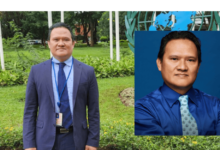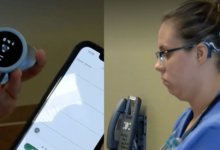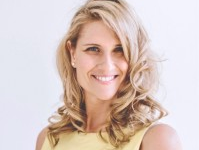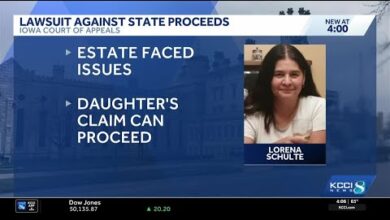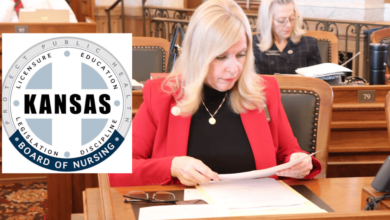The nursing faith groups tackling health inequalities

Religion has played an integral role in nursing’s history, with many early services across the UK rooted in religious or spiritual principles.
It was not until the 19th century that secular nursing properly developed, with the establishment of Florence Nightingale’s first nursing school in 1860.
“I think we need to be really confident as nurses to deliver spiritual care”
Anne Taylor
Since then, however, the relationship between religion and nursing has cooled, with the two moving further apart.
But change is seemingly afoot.
Currently, faith-based nursing practice is far more prevalent in the US.
There, it is a recognised specialty operating in community settings, which places emphasis on the importance of addressing the spiritual needs of patients.
This phenomenon has slowly been adopted by nurses in the UK in recent years. Most prominently, it is found in charitable or volunteer-led grassroots organisations, set up by nurses who are committed to putting spiritual care back onto the nursing agenda.
Some 248,000 registered professionals said they had no religion, meaning over half of professionals on the NMC register identify with some level of faith.
The latest census also revealed that over half of the population in England and Wales still identify with a religion.
This has driven some nurses to call for spiritual care to be given greater weight in practice.
Currently, the NMC has no mention of spiritual or faith-based care in its code or standards of proficiency. Instead, it highlights the need for more general “person-centred” and “holistic” care.
It reveals how these volunteer-led organisations are tackling health inequalities in underserved communities, championing health promotion and providing education for colleagues about the importance of recognising the spiritual needs of patients.
Today, the charity supports 89 parish nurses across England, Scotland and Northern Ireland.

Cath Carter
(right) leading a
walking group
Parish nurses are registered nurses who work within churches and other Christian organisations to provide holistic care in the community.
Around two-thirds of parish nurses are volunteers, meaning the majority also do substantive hours as registered nurses in the NHS and other healthcare settings.
Anne Taylor, director of nursing at the charity, told Nursing Times that parish nursing services were designed with local health needs in mind, bringing an “additional layer of support” to patients.
Parish nurses work across a variety of settings in the community; some work in city centres providing outreach for unhoused people, while others might provide mental health support for rural farming communities.
Ms Taylor said: “We don’t replicate or replace statutory services, including the NHS. Often the parish nurse role is bringing people in and advocating for people to get the care that they need.”
However, she argued that it had become “very hard to be holistic” in recent years due to the pressures facing health and care services.
“Faith-based nursing is intentional about hearing what has meaning and purpose for a person, and then addressing those needs as they arise,” Ms Taylor said.
“We need to be really confident as nurses to deliver spiritual care. We saw in the pandemic, where spiritual care wasn’t attended to, that’s at the peril of our patient.”
For example, Ms Carter has been leading a walking group in St Andrews that supports older people to leave their house, exercise and socialise.
She told Nursing Times that parish nurses “could fill the gaps of where a need was growing”.
In addition, she said activities such as her walking group often “open the door” for other conversations about health promotion.

Lorna Bellamy
“Trust is a huge part of it,” Ms Bellamy noted. “If you can do it in a much more relaxed way, like at the food bank or a community hub, then they’re more relaxed. They open up about all sorts.”
Other areas where faith-based nursing groups can access communities is within places of worship.
The group British Sikh Nurses has been doing work within local gurdwaras since 2016 to tackle health inequalities in the community, particularly around diabetes and hypertension.
Children’s nurse Rohit Sagoo founded the grassroots organisation after he noticed the disparities in health outcomes that were negatively affecting the Sikh community.
As a result, he began to pitch up tables in gurdwaras across London and Birmingham, to take the blood pressure of the congregation and talk to them about organ and stem cell donation.
“It was a nurse-led health education intervention that built trust within the Sikh community,” he told Nursing Times.
Mr Sagoo noted that around 60% of those screened were “walking around with undiagnosed hypertension”, and that the organisation’s community outreach had encouraged and enabled people to go to their GP for further testing.

Rohit Sagoo (left)
“Everyone gives that time free of charge. It’s about the tenets of the Sikh religion of giving back to your community,” he said.
“It’s a really inclusive and person-centred model that we use – it’s evolved beautifully.”
He highlighted that these groups offered services that statutory NHS services were “lacking”, by putting a greater emphasis on targeted holistic care in the heart of faith communities.
He called on trusts to connect with local faith-based nursing organisations, to enable them to do grassroots work on a bigger scale.
Some faith-based nursing groups operate in a more digital space, where nurses and midwives belonging to faith communities can connect with one another online and share ideas of how to tackle health inequalities in their organisations.
First established in the 1990s, the group has grown exponentially in recent years due to a WhatsApp group, which now connects hundreds of Jewish nurses and midwives working across the UK.
Ms Barnett argued that many nurses were “frightened” of addressing spiritual care with patients, which she said could be down to a lack of knowledge or lack of education.
Despite this fear, Ms Barnett noted that addressing a patient’s spiritual needs was “embedded in nursing and midwifery”.
She said: “We know that by nurturing somebody’s physical and spiritual wellbeing, it aids recovery, and it recognises them as a whole person, whether that’s with reference to childbirth, or lifecycle needs, or end-of-life care.”
“There’s a need within our own communities to educate each other and to ensure that people are health seeking”
Gabbi Cohen
Ms Barnett noted that many nurses were undertaking work in their own organisations to better educate colleagues on some of the specific needs Jewish people may have when they come into hospital for care.
In addition, some were also volunteering alongside charitable organisations to undertake health promotion in the community.
For example, nurses were leading on campaigns that promote mammograms and cervical screenings in orthodox communities.
It comes as tens of thousands of people with Jewish ancestry are more likely to carry a genetic fault that can increase the risk of developing some cancers.
Ms Cohen explained that many health professionals coming from a place of faith were often the ones who were able to recognise and prioritise the holistic needs of patients, because they understand the need themselves.
“Where you’re really involved in your own faith, it does make you more open to asking those difficult questions to other people,” she said, adding: “I think [it] makes you a bit more empathetic and you can gauge those deeper connections with patients.”
The Association of South Asian Midwives (ASAM), founded in 2019, is a platform for both the South Asian midwifery workforce and the birthing community.
Nafiza Anwar, one of the co-founders of the group, told Nursing Times that ASAM was formed after a group of midwives realised the level of inequality that South Asian mothers were facing in maternity outcomes, as well as barriers that South Asian NHS staff were facing at work.
The most recent MBRRACE-UK (Mothers and Babies: Reducing Risk through Audits and Confidential Enquiries across the UK) annual report found that women from an Asian ethnic background were twice as likely to die during childbirth compared to White women, and Black women remained four times more likely to do so.
Members of ASAM have taken it upon themselves to take an inclusive and holistic approach to maternity care, and to champion equitable care for families from South Asian backgrounds.

Members of the Association of South Asian Midwives
She said: “Everybody’s different, their needs are different. You have to take into account people’s culture, people’s beliefs, people’s faith… and what you need to make sure that you have that safe and equitable service.
“It’s about understanding and making people aware. Every religion has its rituals, and we should be very mindful of that.”
She explained that there had also been challenges in trying to approach patients about their faith needs, due to the bias from staff that can exist in practice.
“Cultural competency is a really big issue,” Ms Ali said. “I have seen racism, I have seen bias, conscious and unconscious, and it still happens to this day.”
She noted that there were considerations to be made around personal care, dress and hygiene, which could differ from person to person.
For example, Ms Ali said some mothers would wish to be dressed modestly in hospital, including wearing a headscarf, or that they may wear certain sacred religious items that cannot be removed.
Separately, ASAM member and midwife Samiya Kalang has been advocating on behalf of South Asian families that have lost a baby.
She had noticed that the memory box at her trust, where bereaved families can leave messages for the babies they have lost, were very Christian-focused.
As such, she set up two more memory boxes for Muslims and Sikhs, so that families could feel that their memories were being placed in a space more aligned to their faith.
As these grassroots faith organisations undertake important work, some have called for greater recognition from the NMC about the need for spiritual care, so that the future nursing and midwifery workforce has a strengthened understanding of how to deal with the faith needs of patients.
In response, Julie Bliss, senior nursing education adviser at the NMC, told Nursing Times that the regulator’s code and standards “guide nursing and midwifery professionals to provide non-discriminatory, person-centred and kind care”.
She added: “This includes working in partnership with people in your care and responding to their preferences or concerns.
“It also means preserving people’s dignity by treating everyone fairly and being mindful not to express your own personal beliefs in an inappropriate way.”
What is certain is that faith-based nursing, in all its forms, will continue to expand and develop across the UK, appearing in often hidden parts of society to help support health promotion in different faith communities and fulfil a perceived spiritual need.
